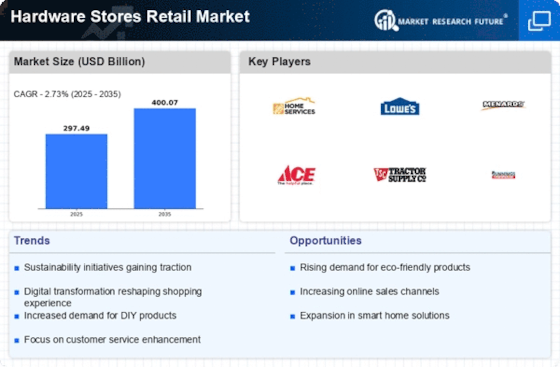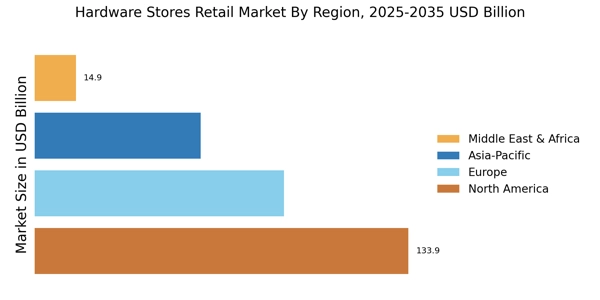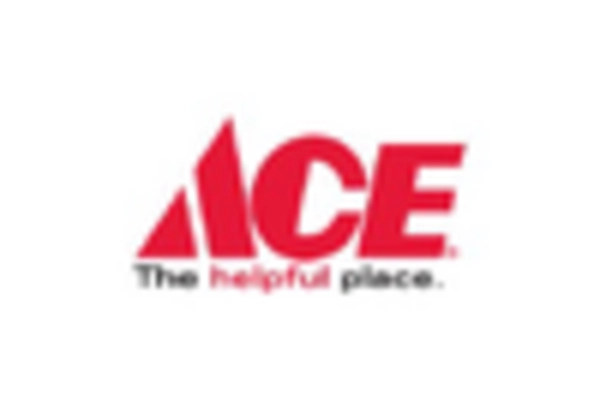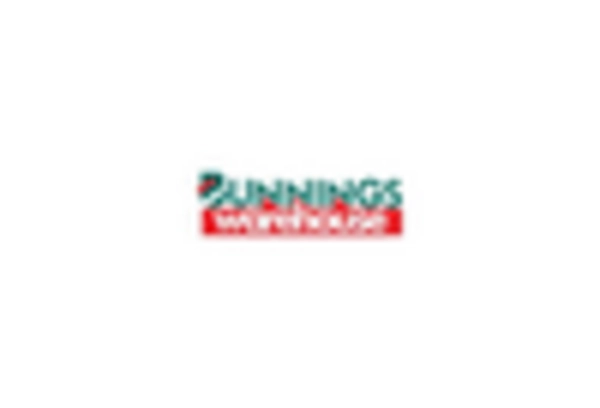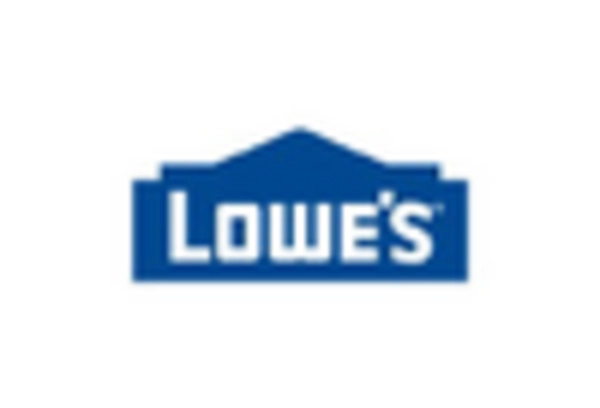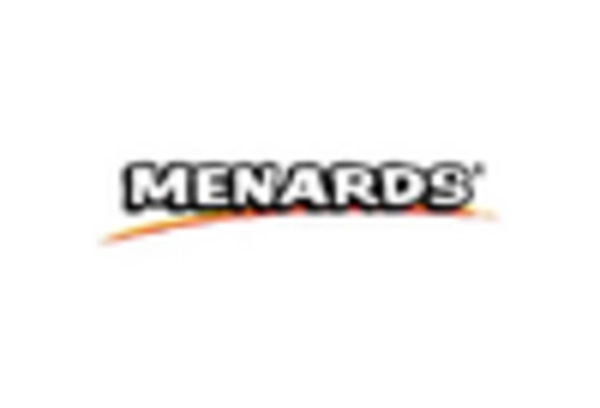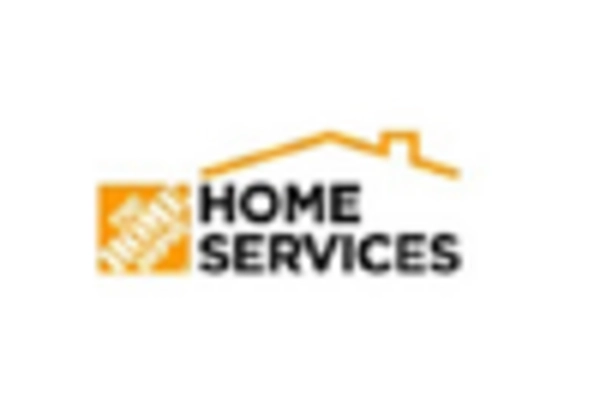Expansion of E-commerce Platforms
The hardware stores retail Market is witnessing a significant shift towards e-commerce platforms, which are becoming increasingly vital for consumer engagement. With the rise of online shopping, hardware stores are adapting their business models to include digital sales channels. Data suggests that e-commerce sales in the home improvement sector are expected to grow by over 20% annually, reflecting changing consumer preferences. This transition allows hardware stores to reach a broader audience, offering convenience and accessibility. Additionally, the integration of online inventory management systems enables stores to streamline operations and enhance customer experience. As a result, hardware stores that effectively leverage e-commerce are likely to gain a competitive edge in the market.
Increase in Home Renovation Projects
The Hardware Stores Retail Market is experiencing a notable surge in home renovation projects, driven by a growing interest in enhancing living spaces. As homeowners increasingly prioritize home improvement, the demand for tools, materials, and supplies has escalated. According to recent data, the home improvement market is projected to reach approximately 450 billion dollars by 2026, indicating a robust growth trajectory. This trend is likely to benefit hardware stores, as they serve as primary suppliers for renovation needs. Furthermore, the rise in remote work has prompted individuals to invest in their homes, further fueling the demand for hardware products. Consequently, hardware stores are positioned to capitalize on this trend, providing essential resources for consumers looking to undertake renovation projects.
Technological Advancements in Retail
The Hardware Stores Retail Market is being transformed by technological advancements that enhance the shopping experience. Innovations such as augmented reality and mobile applications are enabling consumers to visualize products in their own spaces before making a purchase. Furthermore, the implementation of smart inventory systems allows hardware stores to optimize stock levels and reduce waste. Data indicates that retailers adopting advanced technologies can improve operational efficiency by up to 30%. As hardware stores embrace these technologies, they are likely to attract tech-savvy consumers who value convenience and efficiency. This trend suggests that the integration of technology will play a crucial role in shaping the future of the hardware retail landscape.
Growing Interest in Sustainable Products
The Hardware Stores Retail Market is increasingly influenced by consumer demand for sustainable and eco-friendly products. As environmental awareness rises, consumers are seeking materials and tools that align with their values. This trend is reflected in the growing market for sustainable building materials, which is projected to reach 500 billion dollars by 2027. Hardware stores are responding by expanding their offerings to include environmentally friendly options, such as low-VOC paints and recycled materials. This shift not only meets consumer demand but also positions hardware stores as responsible retailers in the eyes of environmentally conscious shoppers. Consequently, the emphasis on sustainability is likely to drive sales and enhance brand loyalty within the hardware sector.
Increased Urbanization and Housing Demand
The Hardware Stores Retail Market is significantly impacted by the ongoing trend of urbanization, which is driving housing demand in metropolitan areas. As more individuals move to cities, the need for housing and related infrastructure is escalating. This trend is reflected in the construction sector, which is projected to grow at a rate of 5% annually. Consequently, hardware stores are positioned to benefit from increased sales of construction materials and tools. Additionally, urban dwellers often engage in DIY projects to personalize their living spaces, further boosting demand for hardware products. As urbanization continues to reshape demographics, hardware stores that cater to these evolving needs are likely to thrive in the competitive market.


